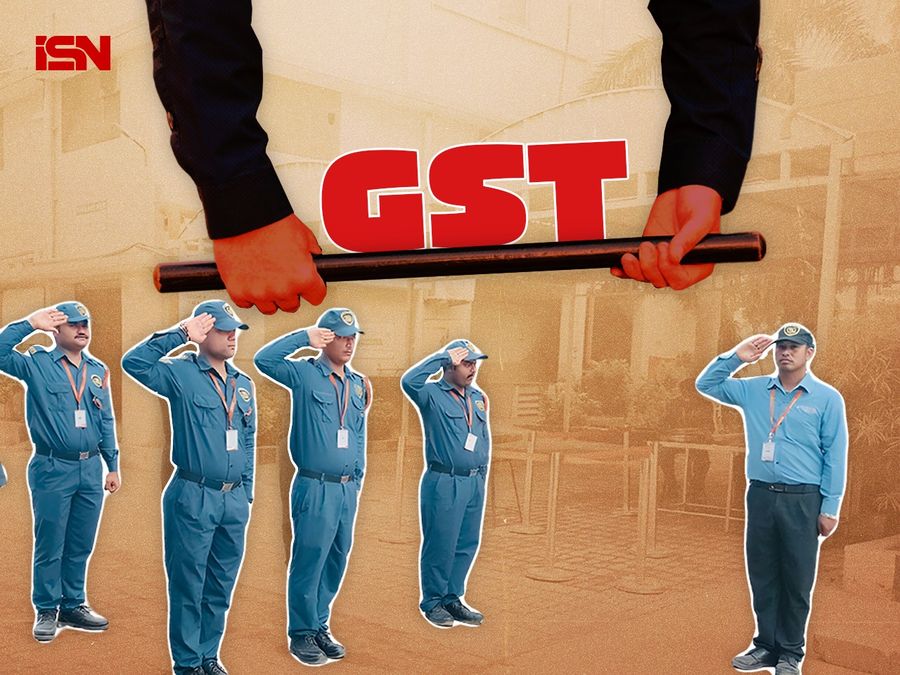Human workforce as a service means providing businesses with skilled workers to perform specific tasks.
In the security industry, this involves providing trained security guards, supervisors and other personnel to protect people and property. This allows businesses to focus on their core operations while relying on specialist service providers to manage their staffing needs.
Companies like HiTech Human Capital (India) Ltd (HHCiL) use this model to fill important roles across different sectors, ensuring smooth and secure operations.
GST Challenges in the Security Services Industry
In India, the security services industry plays a crucial role in protecting businesses, institutions and individuals.
Under the leadership of Neeraj Tiwari, HHCiL has been at the forefront of this industry, providing essential services such as security solutions, facility management and payroll administration.
However, the introduction of the Goods and Services Tax (GST) has brought with it significant challenges for the sector.
When Goods and services tax The new tax system, which was introduced in July 2017, marked a transformative change in India’s tax system. The Indian government introduced this tax system to streamline tax collection, eliminate the domino effect of multiple taxes, and bring more businesses into the formal tax net.
However, this change has introduced complexities and financial burdens for the security services industry, particularly under the Advance Charge Mechanism (FCM).
Understanding RCM and FCM in GST
Initially, security services were taxable under the Advance Charge Mechanism (FCM), meaning that service providers like HHCiL were responsible for collecting and remitting GST to the government. This created a significant burden on businesses that have thin margins and are liable to pay high GST rates.
Due to difficulties in collecting taxes from many small service providers, the government introduced the Reverse Charge Mechanism (RCM) in January 2019.
To improve the situation, industry leaders are now advocating the adoption of the Reverse Charge Mechanism (RCM) for the security sector.
Under the RCM, the obligation to pay GST would shift from the service provider to the recipient of the service. This change would reduce the financial pressure on security service companies and streamline the tax payment process. More importantly, this change would help preserve the jobs of hundreds of thousands of security guards across the country.
The tension of high GST rates
Like many other companies in the sector, HHCIL It charges service fees ranging from 3.85% to 10% for its services. However, the GST levied on these services is a hefty 18%. This discrepancy creates a significant financial burden for businesses, particularly smaller market players.
“The government, as a silent partner, earns 18% of our business, while our service fees range between 3.85% and 10%,” Neeraj Tiwari said.
This stark difference between what a company earns and what it pays in taxes poses a serious threat to the sustainability of companies in the security services sector. The high GST rate also puts companies in a difficult position as it forces them to either absorb the additional costs, which eats into their already low profits, or pass them on to their customers.
If the company decides to pass on these costs, it could potentially reduce demand for its services.
Advocating for a reduction in the implementation of GST or RCM
Faced with mounting challenges posed by the 18% GST under the FCM, industry leaders are now increasingly advocating for a reduction in the tax rate or adoption of the Reverse Charge Mechanism (RCM).
The shift to RCM would ease the financial pressure on companies like HHCiL, allowing them to maintain their slim margins and continue to offer competitive prices to customers. By shifting the responsibility for paying GST to the service recipient, companies in the security services sector will also be able to improve their cash flow, making it easier to maintain operations and grow.
“If the GST department does not reconsider the applicability of the RCM, our industry could face a drastic collapse, leading to closure of hundreds of private security agencies and job losses for hundreds of thousands of security guards,” Neeraj added.
Disclaimer:
The information contained in this post is for general information purposes only. We make no representations or warranties of any kind, express or implied, about the completeness, accuracy, reliability, suitability or availability with respect to the website or the information, products, services, or related graphics contained on the post for any purpose.
We respect the intellectual property rights of content creators. If you are the owner of any material featured on our website and have concerns about its use, please contact us. We are committed to addressing any copyright issues promptly and will remove any material within 2 days of receiving a request from the rightful owner.

